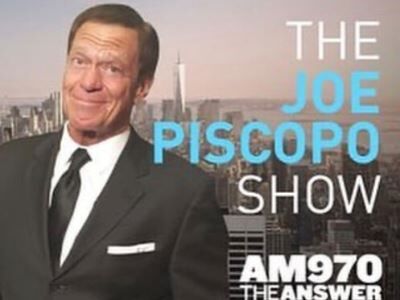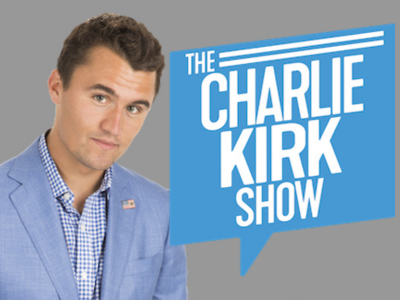US Ryder Cup a mess that not even another task force could fix
News > Sports News

Audio By Carbonatix
2:39 PM on Tuesday, October 7
By DOUG FERGUSON
The best news out of the American camp since losing the Ryder Cup again to the Europeans is that no one has suggested another task force.
The path forward is no less muddled than it was leaving Scotland in 2014.
An Indiana club pro — Ted Bishop, the PGA of America president — decided that Tom Watson should be the U.S. captain for those matches at Gleneagles. That didn't go well, ending not only with another loss but with Phil Mickelson in a most awkward takedown of the captain.
That led to the vaunted task force, and Mickelson was far more optimistic five months later when the work was completed.
“We are looking forward to not just 2016 ... but really laying a foundation and a blueprint for the years to follow of continuity and success,” Mickelson said.
The Americans have won two of the five Ryder Cups since then — that could be called success considering they had won only two of the previous 10 times.
The continuity?
That belongs to Europe, which not only has the Ryder Cup, it practically owns it.
The task force — the official name was the PGA of America Ryder Cup Task Force — was disbanded in 2015 and replaced by a Ryder Cup committee of three PGA Tour players and three PGA of America executives.
The way the system works is for the immediate past captain to replace his predecessor on the committee — Keegan Bradley is on, Zach Johnson is off.
But there is some sentiment in bringing Bradley back as captain for Adare Manor in Ireland in 2027 (perhaps because he won't be in charge of setting up the course ). If that happens, then what? Justin Thomas is on the committee. Jordan Spieth's term is up.
Of course, the PGA of America could decide to scrap it and start over.
The one constant in the dysfunctional American camp is the PGA of America, which owns the biennial competition of high stakes and even higher revenue when it's played in the United States.
But the organization of 31,000 club professionals — as vital as any organization to the game in America — has no direct involvement with players except for the PGA Championship. Don Rea Jr., the president serving a two-year term, suggested otherwise at Quail Hollow in May.
“Don't forget, every PGA Tour member is a member of the PGA of America, so I'm their president, too,” he said in a rambling news conference.
This is the same president who embarrassingly compared vitriolic comments at Bethpage Black to what could be heard at a youth soccer game. That came in a BBC interview before the Sunday singles, a day after extra security was brought in to handle vulgarity directed at Rory McIlroy.
For the Europeans, this Ryder Cup was business as usual.
For the Americans, it's a mess.
One person who helped the American cause more than any other was Paul Azinger. He agreed to be captain in 2008 provided the PGA of America scrap its archaic system of awarding Ryder Cup points only for top-10 finishes.
Perhaps if the PGA of America was more in tune with the PGA Tour it would have realized sooner that the influx of the best players from every corner of the globe meant it was increasingly more difficult for Americans to earn points.
Oddly enough, the PGA of America has not involved Azinger in Ryder Cup matters since that 2008 victory.
But these issues go further back than the illustrious task force. This takes root in 1968 when the touring pros lost faith in the PGA professionals who were running the sport, a split that led to the modern PGA Tour.
There were two golf tournaments that needed to be divvied up. One was the old World Series of Golf, which was becoming a lucrative event at Firestone. The other was an exhibition called the Ryder Cup — that's what it was at the time — that could barely sell a ticket.
The previous Ryder Cup had been at Champions Golf Club in Houston. Peter Alliss, the late incomparable British commentator who played in those 1967 matches, once recalled, “The opening ceremony began with hundreds, not thousands of spectators."
Tour players took the World Series of Golf, which eventually became a World Golf Championship and now no longer exists. Imagine if they had taken the Ryder Cup.
For one thing, the PGA Tour probably would not have bothered creating its own cash cow called the Presidents Cup. There also would not be a disconnect between PGA Tour players and an organization with which they are not involved but once a year.
The European Tour owns 60% of Ryder Cup Europe. The tournament committee is part of a wide-ranging selection process led by the European tour's chief executive, Guy Kinnings, and takes input from an extensive set of people directly involved in the Ryder Cup.
The PGA Tour owns zero percent of the Ryder Cup. It just supplies the players. That's why money (where the revenue was going) became an issue in 1999 and still lingers. There have been Ryder Cup wins, at Hazeltine and Whistling Straits, but no real template for success.
Mickelson thought the task force would create a blueprint not just for the next one, but for the next 10 Ryder Cups. That didn't go as planned. It led to a buddy system, and then continuity fell apart when Mickelson led a breakaway to LIV Golf.
Perhaps the next move is for the PGA of America to consider turning over management to the PGA Tour, which has more stability, more expertise running big events and a stronger relationship with the players who perform.
It might not be enough to turn the tide. But it can't hurt.
___
On The Fringe analyzes the biggest topics in golf during the season. AP golf: https://apnews.com/hub/golf







